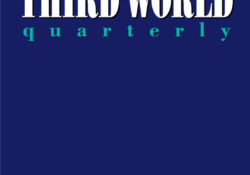tandfonline.com har udgivet en rapport under søgningen “Teacher Education Mathematics”: ABSTRACT ABSTRACT International education options have expanded in most school systems around the world with promises of curricular innovation. However, there has been limited attention given to the consequences of this shift for social inequalities embedded in pre-existing institutional hierarchies. The International Baccalaureate (IB) Diploma, a two-year high school curriculum, has been prominent among recent private curricula, centred on notions of international mindedness and global preparedness. This article seeks to examine the consequences of the presence of the IB Diploma in a school system that is socioeconomically and academically stratified and shaped by strategies of academic distinction focused on local hierarchies. Using quantitative data on IB Diploma students and schools in Australia, it analyses the interaction of the IB Diploma… Continue Reading →
Like this:
Like Loading...
tandfonline.com har udgivet en rapport under søgningen “Teacher Education Mathematics”: Abstract Abstract Inspired by Pierre Bourdieu’s notion of capital convertibility, this article investigates why wealth inequalities in South Africa under the African National Congress have remained so persistently stubborn and how it is possible that the revolutionary movement, ostensibly devoted to the ideals of the Freedom Charter, has not managed to radically improve matters 25 years after the fall of apartheid. Based on a series of interviews conducted with South African academics and members of civil society, the article seeks to provide some answers to this conundrum by tracing the roots of the problem to reproduction mechanisms that are deeply entrenched in the economy of South Africa, its politics and its educational system. Link til kilde
Like this:
Like Loading...
eric.ed.gov har udgivet: Understanding disparities in school readiness among America’s children when they begin kindergarten is critically important, now more than ever. In today’s 21st century global economy, it is expected that the great majority of children will complete high school ready to enter college or begin a career, and assume their civic responsibilities. This requires strong math, reading, science, and other cognitive skills, as well as the abilities to work well and communicate eeffectively with others, solve problems creatively, and see tasks to completion. Unfortunately, the weak early starts that many children are getting make it hard to attain these societal goals. Knowing which groups of children tend to start school behind, how far behind they are, and what factors contribute to their lag, can help in developing policies… Continue Reading →
Like this:
Like Loading...
tandfonline.com har udgivet en rapport under søgningen “Teacher Education Mathematics”: Abstract Abstract Despite a wide international literature on the effect of vocational and general education on school-to-work transition, relatively little is known about the role of having studied specific subjects in explaining inequalities in young people’s labour market outcomes. This paper aims to fill this gap by examining differences in employment chances of young people who left education early, either at the end of compulsory schooling or at the end of secondary school. Using data from the Scottish Longitudinal Study, a large-scale linkage study created using data from administrative and statistical sources, we found little gender differences but strong parental background differences in school leavers’ employment status and type of occupation entered. Social inequalities in labour market outcomes were only… Continue Reading →
Like this:
Like Loading...


